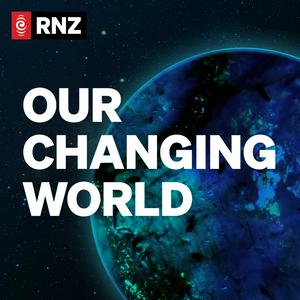Since 2018 there's been a massive effort underway to clear over 110,000 hectares of South Westland of possums, rats and stoats. As the pest numbers have dropped the native flora and fauna seem to have flourished. The eradication stage is now nearing completion, and the focus is switching to maintenance. What will it take to keep the pests out long-term? And what can be learned from this large-scale project that could be used elsewhere in Aotearoa?
Sign up to the Our Changing World monthly newsletter for episode backstories, science analysis and more.
Learn more:
Read/Listen to the rest of the reports from Tess Brunton’s reporting trip to the West Coast, about the eradication project, the work of species dogs, the feedback from tour operators and how rowi, New Zealand’s rarest kiwi, has been helped come back from the brink.
For more on the use of AI in pest management project, listen to how the Southern Lakes Sanctuary team have been making use of it at Wye Creek.
Guests:
Chad Cottle, Predator Free South Westland
Ethan Perry, Predator Free South Westland
Nate St Hill, Predator Free South Westland
Pouri Rakete-Stones, Predator Free South Westland
Dion Arnold, White Heron Sanctuary Tours
Go to this episode on rnz.co.nz for more details


